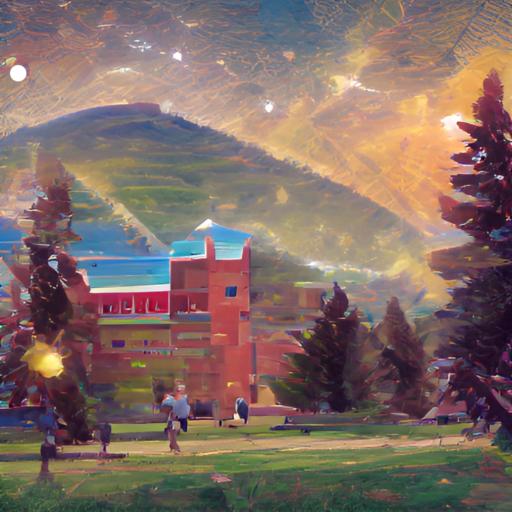A Personal Welcome and Unlikely Beginnings
It’s always a pleasure to be here. I split my time between Wheatland and Longmont—raising bison on a ranch and farming when I’m not immersed in technology. It’s a grounded way to live, and somehow the bison haven’t killed me yet, so I must be doing something right. But today, I want to talk to you about something far less rural and far more revolutionary: the blockchain industry. When I started out in this field, no one cared. You couldn’t give cryptocurrency away.
“In fact, there was a video game called StarCraft. A few of you probably played it….They had a tournament, and the first prize was about $1,000. The fifth prize was 25 Bitcoin. And nobody wanted to be fifth prize! So it shows you how much things have changed, and how big the industry has gotten.”
The Rise of Crypto in Government
Today, for the first time, we have a U.S. president who is genuinely interested in cryptocurrency—so much so that there’s now a crypto and AI czar, and an executive order calling for an all-of-government approach. That means every branch of government is now asking hard questions: how can we be more honest, more efficient, more accountable? And central to that conversation is blockchain technology.
From Assets to Programmable Systems
The early fights in crypto were about classification: is a cryptocurrency a security or a commodity? That was too narrow. The truth is, cryptocurrencies are programmable assets—financial stem cells. They can be securities, commodities, intellectual property, or tools in supply chain tracking.
“In fact, one of our best partners is the son of Snoop Dogg. He has a project called Clay Nation, and we do IP with them. Strange bedfellows, but we have a heck of a lot of fun with them.”
Blockchain Use Cases Across Industry
This stretches into more fundamental domains. Think about the provenance of goods—where they came from, how they were made, whether they’re carbon neutral or fair trade. Think about secure elections. Blockchain offers a way to ensure who voted, how they voted, and whether every vote was counted, all in a tamper-resistant, decentralized way. Concepts like self-sovereign identity and anonymous credentials are no longer theoretical—they’re being implemented.
”So when you hear things like, “We want to know the provenance of where something comes from,” or, “We want to know if something is environmentally friendly,” or if there’s fair trade, or if something is carbon neutral… when you hear things like, “We’d like to understand where the electricity we’re using was generated—is it nuclear, geothermal, solar?”—whatever that might be—you’re actually talking about something that can be a cryptocurrency or blockchain project.” ”When you talk about secure elections and national ID systems—this is something that’s been in the zeitgeist of the public for about a decade or more. In fact, I’m old enough to remember Bush v. Gore in 2000. Those old hanging chads! So it’s nothing new—it comes up every few cycles. Well, when we saw that, we asked: how do you build a secure voting system? How do you make sure that everybody who voted was eligible to vote? How do you make sure that votes were equitably counted?” ”These are basic questions with very hard answers. And they tend to be very fragmented. The challenge is that the people who lose tend to not agree with the results. And at times they can say, “The system as a whole is broken.” That’s a blockchain problem as well. Because it turns out—””the very same thing that can track and trace how many Bitcoin are in circulation can also be used to track and trace how many votes are in circulation.**”
Standards, Institutions, and Public Accountability
Standards are forming. The IETF, W3C, and even NIST are working together on cryptographic and blockchain protocols. We’ve created a corpus of work that can now revolutionize entire industries.
”Perhaps one of the big projects being discussed right now is whether it’s possible to put the entire U.S. federal budget on a blockchain—which is a pretty extraordinary thing when you think about it.” Imagine trillions of dollars visible, auditable, accountable in real time. Procurement reform—wasteful spending like the trillion-dollar F-35—is also under scrutiny.
The Philosophy of Decentralization
What makes cryptocurrency special, and why I’ve remained in this space for over a decade, is its inherent democratic nature. These are bottom-up systems. No matter where you’re born, what language you speak, what gender you are—these systems give everyone equal access. That’s not just a tech feature; it’s a philosophical foundation.
”And the magic of that is that when you create a system that has that intrinsic fairness built into it, then when you start talking about redeploying social infrastructure, they just simply inherit it—for your voting system, for your economic systems, for your social systems.”
The Broken Social Contract and the Role of Money
We’ve reached a tipping point. Technology is reshaping our social contracts. Is money still fair? When “The Simpsons” aired in 1988, Homer Simpson—a high school dropout—could support a family, own a home, and live a comfortable life. “But now in 2025, despite the fact that productivity is up hundreds of percent, despite all this amazing technology—I mean, ChatGPT just released 0.3 Mini today, it’s an incredible thing—our standard of living is stagnant. Our buying power is stagnant or declining. The middle class is hollowing out. So a lot of people are saying, “Well, hang on a second here. Do we still want to keep this system, or do we want to change it? And if so, how do we change it in a way that’s more fair for people?”
Truth, Information, and Deep Fakes
At the same time, reality itself is harder to define. AI has made it difficult to distinguish between what’s real and what’s fabricated. Deepfakes, voice clones, AI-generated news—how do we verify truth?
”Now: If you see it with your own eyes, you’re like, “Eh, it’s probably AI. I just don’t feel like they would say that.” We go from facts… to feelings. So how do you authenticate information? How do you know the things you’re reading, seeing—are actually accurate and true?” Again, blockchain offers a solution. Cryptographically verifying the timestamp and origin of information is now possible.
Blockchain as Monetary Experiment
Blockchain is a real-time lab for monetary policy. There are over 30,000 cryptocurrencies, and each one acts like a mini central bank. Where else could you run thousands of monetary experiments simultaneously, with millions of participants? We’ve even seen the President of the United States launch a meme coin—TrumpCoin. Satire? Prediction market? Social signal? Nobody knows—but the fact that it exists is remarkable.
”[It’s] truly an incredible thing… that we have, in real-time, all these experiments running.”
AI, Power, and the Case for Decentralized Intelligence
This field also touches the forefront of AI. I’m uncomfortable with the idea that five companies—OpenAI, Google, Apple, Facebook, etc.—will control the most powerful technology in human history. These companies are unelected and unaccountable, yet they shape the thoughts and decisions of an entire generation.
”If you think about it, many of you use ChatGPT or something like it to help you with your homework, to help you think about things, to help you write a draft. Well, what if it’s bent in a certain way? Makes you think a certain way—subtly, or sometimes not so much. What impact does that have on society? And the people who control those things—don’t they have a little bit too much power?” “So maybe—just maybe—such a thing should be decentralized…. nobody owns it or controls it. It becomes like a public good.”
Quantum Computing and Cryptographic Defenses
Quantum computing is another area where blockchain is ahead. For years, quantum computers were “just around the corner.” Now, they’re arriving faster than expected. Our industry is leading the charge in building quantum-resistant protocols, with algorithms like Falcon, XMSS, and lattice-based cryptography already being explored and standardized. The best testing method? Adversarial pressure. We publish, our competitors try to break it, and the system improves. That’s the spirit of crypto.
The Rise of Zero-Knowledge Proofs
Zero-knowledge proofs let you prove things without revealing them. How do you prove you’re over 21 without showing your ID?
“That’s the zero-knowledge world. This was something invented by Silvio Micali, who is now a Turing Award winner—the Nobel Prize of computer science—back in the 1980s at MIT. If you count up the amount of zero-knowledge papers that were published from 1980 to 2000, there are more papers published in one year now than in the 1980s and 1990s combined. Why? Because of the cryptocurrency space.” “We want supply chains where you can prove properties of things in the supply chain without wrecking the competitive advantages of the companies that participate in them. We want to be able to do government secrets, like security clearance stuff, and all types of things like that. These are the things we want—so these are practical use cases. And the blockchain space is evolving them.” It’s not about theory—it’s about privacy-preserving voting, whistleblowing, encrypted journalism, and more.
A Day in the Life and the Joy of Building
I love this industry because it allows me to wear many hats. One day I’m thinking about monetary theory, the next I’m talking to game developers, politicians, or designing supply chain systems. That variety keeps me young.
“And that’s the final point of the speech. This is not an invitation-only industry. I have six companies, and a lot of them are in industries that are invitation-only. Like, I have a clinic up in Gillette, Wyoming—we have 11,000 patients. All the people there who lead that are doctors. They have great credentials, and they’ve been there for decades, and they have all this life experience. [But] That’s not the case in the cryptocurrency space. All the leaders are people just like the people in this room who got very passionate about something. They embraced self-study. They got interested in solving a problem—obsessed with solving that problem. That’s where the greatness comes from.”
Learn From the Past, Build the Future
One final lesson: don’t ignore what came before you. Every time I’ve made a mistake in crypto, it’s because I ignored a paper or precedent. Academia is a treasure trove of wisdom—if you learn how to access it. That’s why collaboration between generations matters. Young innovators and seasoned experts together can create incredible systems—like Cardano. Our programming language Plutus was co-designed by Phil Wadler, a Haskell pioneer who worked on the internet’s foundations. His advice saved us from countless missteps.
”I’ll close there and tell you the future is going to be decentralized. Things change very rapidly. People who are in power can be removed from power very quickly. Budgets can change. Politics can change. It just needs a little bit of a push… and that’s what we do for a living”



Aucun commentaire pour le moment...